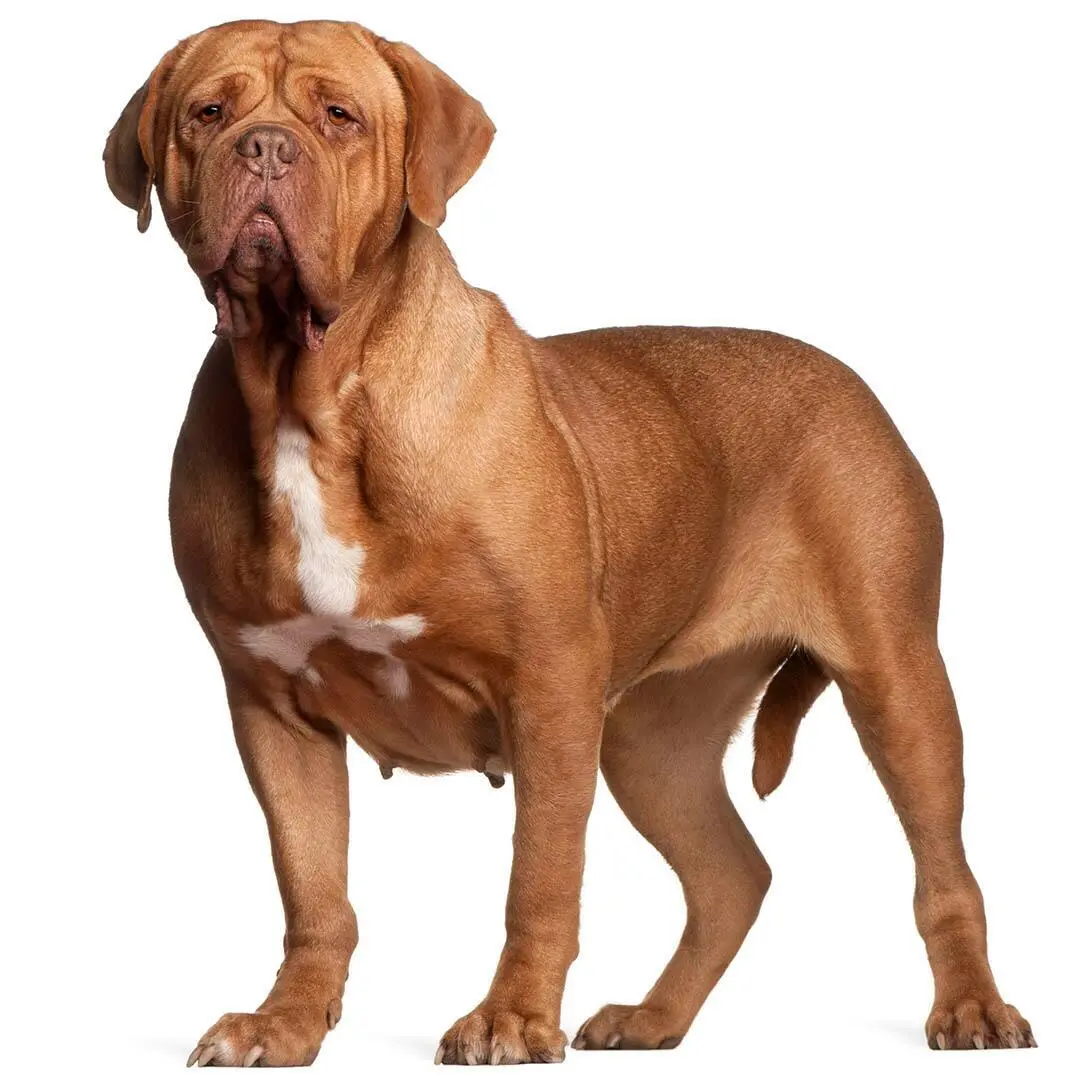
Dogue de Bordeaux
Dogue de Bordeaux are large dogs with muscular bodies. They are very loyal and protective.
Extended Description
The Dogue de Bordeaux, also known as the French Mastiff, is one of the oldest French dog breeds, known for its strength, courage, and loyalty. Originally used for guarding, hunting, and pulling heavy carts, these dogs are powerful and athletic. Despite their imposing appearance, Dogues de Bordeaux are gentle giants with their families, known for their affectionate and protective nature. They require an experienced owner who can provide them with the training and socialization they need to thrive.
Interesting Facts
The Dogue de Bordeaux gained fame for its role in the 1989 movie "Turner and Hooch," starring Tom Hanks.
Care Recommendations
Dogue de Bordeaux require regular exercise to maintain their health, but their exercise should be moderated, especially in hot weather, due to their brachycephalic (short-nosed) structure. Regular grooming is necessary to keep their coat healthy, and their facial wrinkles should be cleaned regularly to prevent infections. Due to their large size, early training and socialization are important to ensure they grow into well-mannered adults.
Temperament
Dogue de Bordeaux are loyal, protective, and gentle with their families. They are known for their calm demeanor but can be aloof with strangers.
Health Issues
They are prone to hip dysplasia, heart conditions, and respiratory issues due to their brachycephalic structure. Regular vet check-ups are crucial.
Living Conditions
They are best suited for homes with ample space, including a yard. They are not ideal for small apartments due to their size and need for space.
Training Tips
Training should focus on socialization and obedience from a young age. They respond well to positive reinforcement but require consistent and firm training.
Exercise Needs
Dogue de Bordeaux require moderate exercise, including daily walks and playtime. Care should be taken in hot weather to avoid overheating.
Return to Other Breeds



